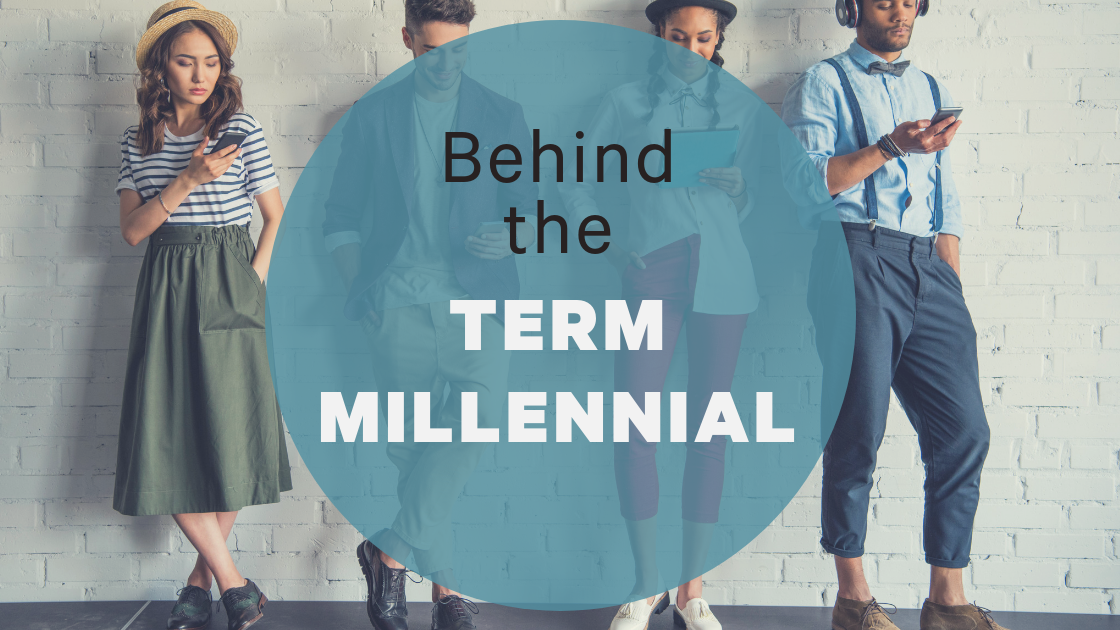Written by: Elizabeth McHeffey
Google the word Millennial and you will come back with an endless flurry of articles written about “how to deal with Millennials”, “how to manage Millennials in the workplace”, or “how to interact with Millennials”. Entitled, job hoppers, self-centered, easily distracted, and need constant praise are frequent adjectives listed. So, I set out on a quest to talk to tourism and travel industry Millennials about these stereotypes and what has shaped us, while also meeting with industry leaders within the GenerationX and Baby Boomer generations to see what the generation gap looks like to them.
To start, lets define the term Millennial. According to Pew Research Center, Millennials are defined as individuals born between 1981 and 1996 – or currently ages 23 to 38. And when talking with my peers, they agreed that they don’t jump for joy over the term that blankets our generation.
Maranda Tippin with the San Diego Tourism Authority says, “There is an unfortunate negative connotation, entitlement, and all of those aspects to [the term] Millennial that I always feel that I have to overcome when people know my age. You call me a Millennial and I take it negatively.”
Kylie Leslie with Visit Phoenix is in agreeance with Maranda, saying, “I think it is an interesting term because it is one that I think can have a negative connotation because people think of Millennials of not having great communication skills, always on their phones… But it has been gotten to a point now where the term has been used so much that people are realizing that not every millennial is the same. It is also such a big age gap. We are such a diverse generation.”
Let’s first dive into what shapes a generation – a big piece of the puzzle is the influence of environmental and economic factors. And arguably the biggest environmental factor that attributes to characteristics of the Millennial generation is technology.
We are the first generation that has largely grown up with computers and cell phones. This has not only created an ease of accessibility to resources but also an emphasis on efficiencies, data collection and analysis. We have the ability to Google ‘top visited cities in the United States’ and the answer will pull up in a millisecond. No need to comb through encyclopedias for hours at the library. We use and analyze data to streamline processes and make improvements – whether it is looking at your insight statistics on your personal Instagram account or improving SEO for your company.
Kimber Tabscott with Monterey Convention and Visitors Bureau points out that, “Data is a key word for our generation. It is something that has really fueled the whole generation. Everything has research and data behind it – it’s at the tip of our fingers, we aren’t spending hours at the library reading books and finding what we need – it’s available at the snap of a finger – and of course there is a [generational] gap. That’s a huge thing, so for the generations that have not embraced that it is going to cause a fissure.”
With answers at our fingertips, we have gotten accustomed to speed, which most likely leads to the stereotype of being easily distracted and having shorter attention spans. However, the positive side to this is that multitasking comes natural to Millennials. We are the generation that can easily sit in an overcrowded coffee shop with the hum of voices and revolving door of customers’ orders being shouted, while participating on a work conference call, texting back our clients, and going through emails.
Kylie with Visit Phoenix says, “We have shorter attention spans than others because we are so used to multitasking. I think most Millennials have a good work ethic because we are so used to doing things at the same time and being pulled into different directions. And that can be a strength for a lot of us because we don’t need complete silence to focus. We are able to focus in different environments – remote places and different work hours — and that is why we are interested in flexibility in the workplace.”
We communicate and collaborate openly. We have grown up using AOL Instant Messenger, texting, Gchat, Facetime and feel completely comfortable sharing personal pictures on Facebook and Instagram – always connected to our peers. TV shows have become much more open and less censored than previous generations, as have conversations on topics such as politics, sexual orientation and inequality in the workplace.
Randi Morritt with Visit Aurora says, “We are a generation of communicators. We will tell you about our dog, share all of our personal pictures, tell you where we live — we will tell the world everything.”
From an economic perspective, Millennials are faced with a great deal of debt compared to previous generations. According to this Forbes Article, the cost for a four-year degree has doubled from 1989 to 2016, even after inflation. Further, the average annual growth in wages was only 0.3% between 1989 and 2016. Concluding that the cost to attend a university increased nearly eight times faster than wages.
While some may say that we are job-hoppers, many Millennials might say that we have to stay on the grind and are entrepreneurial-minded. Having a “side hustle” such as an Etsy Shop or selling beauty products is not out of the norm for us. Once again, emphasizing the multitasker attribute.
Gina Archuleta with Monterey Convention and Visitors Bureau points out that, “We are super scrappy. Salaries haven’t really risen over time with inflation. You can’t support a household on one income anymore — you need two incomes. It is not an option to be a stay-at-home-Mom anymore. A lot of people think that Millennials are too out there or too creative, but we have to be with so many barriers. We just have to go for it because we don’t have another choice.”
So, are the stereotypes true about Millennials? I think it depends which way you look at it. It is important to remember that although entire generations can have similar qualities due to certain environmental or economic factors, each person needs to be treated as an individual. And in talking with senior leaders in the industry, they accentuate this notion.
Margie Sitton with the San Diego Tourism Authority says, “I guess I’m pretty simplistic. We have a lot of Millennials in this [Sales] Department and I find them to be hardworking, on time, and not as whiny as everyone claims they are – so I don’t look at them as a problem. We are in a business community and have a diverse group of people – guys, gals, straight, gay, all different generations – with a commonality that they just love this industry.”
Rachel Benedick with Visit Denver shares, “If you understand what shaped a generation or what shaped the parents of a generation, then you are going to understand the products of those generations. That is what you have to do as a leader. It is my job to understand each individual person and when you figure that out, it is really empowering. You can’t manage every person the same.” She continues, “You have to invest in and understand your people.”
Bottom Line: Each generation has similar behaviors or attributes that they may share due to the factors that they have grown up with. Furthermore, all generations that are just entering the workforce may be faced with larger scrutiny and overgeneralizations than those that are established in the workforce. It is important to take note of the factors that have shaped each generation, while not painting Millennials with one brush. By doing so would encourage a disconnect rather than a collaboration, and a lack of change rather than a larger creative growth. The great news is that industry leaders that I spoke with already do view their team as individuals, encouraging diversity, development, and individuality.
So, are Millennials old news? In the coming years, the conversation will be shifting to GenerationZ.
Elizabeth McHeffey is our digital nomad. During her travels she’ll be diving into topics and trends surrounding the generations in the workforce, stopping along the way to meet with industry leaders that are making waves and reinventing how we work. What we’re calling, “The Remote Route.”
[mkdf_button size=”” type=”” text=”Read more about The Remote Route Here” custom_class=”” icon_pack=”font_awesome” fa_icon=”” link=”https://searchwideglobal.com/blog-why-searchwide-global-has-one-millennial-employee-embarking-on-a-digital-nomad-lifestyle/” target=”_self” color=”” hover_color=”” background_color=”” hover_background_color=”” border_color=”” hover_border_color=”” font_size=”” font_weight=”” margin=””]
SearchWide Global is a full-service executive search firm primarily for companies in Destination Organizations / Hotels & Resorts / Venue Management / Experiential Marketing, Tradeshow & Exhibition / Industry Associations / Sports & Entertainment. Specializing in C-Level and Director level executive searches for companies ranging in size from Fortune 500 corporations to mid-sized public and private companies and associations. Founded in 1999, SearchWide Global headquartered in St. Paul, MN, USA and operates worldwide.



